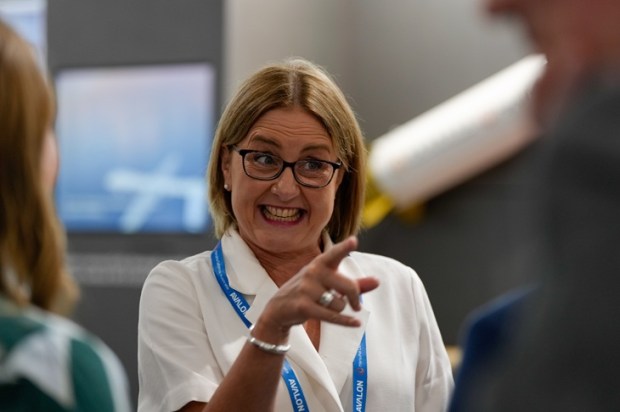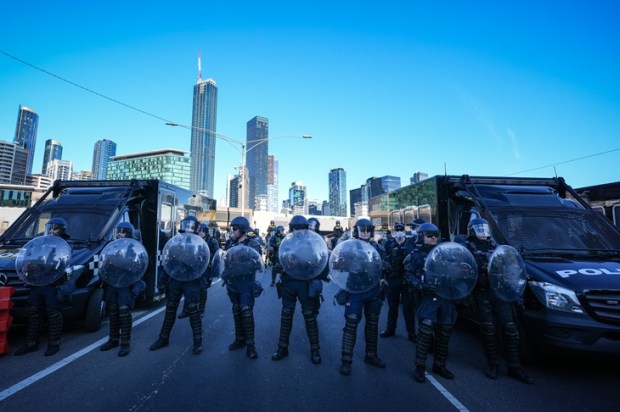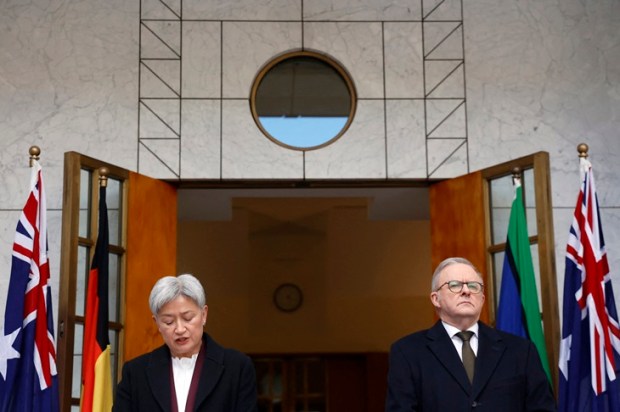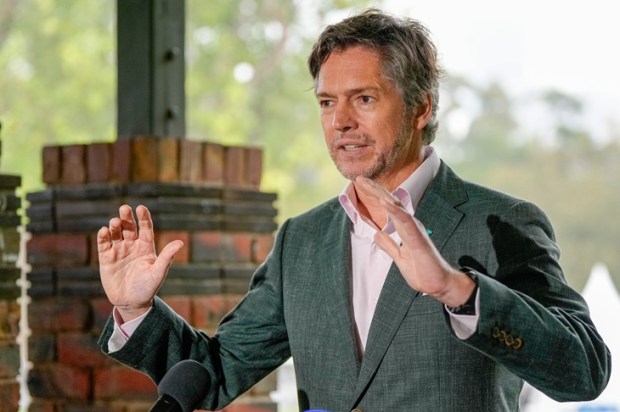A video featuring Elon Musk from 2017 has been resurrected showing his disbelief after seeing (what now feels like blissfully cheap) energy bills facing Australian families.
‘Wow, really?’ Musk remarked, after being told energy was on the verge of becoming a luxury item. ‘I didn’t realise it was that expensive. Australia has so many natural resources that even if you go the fossil fuel route, electricity should be very cheap.’
Musk was right about the last part. Electricity in Australia should be cheap. We own all the resources. We could power our cities until the sun dies. We could be entirely self-sufficient. Instead – our grid is critically dependent on factories in China and mines in the third-world. That was a political choice.
This interview with Musk was conducted during the hype of the Tesla South Australian battery when the press at large were attempting to sell sprawling battery farms as the solution to Australia’s rising expense of solar, wind, and a multitude of failed wave and tide projects. Even those committed to renewable energy admit that their fluctuating output is an issue. Batteries are the magic solution. The problem with this type of energy grid is obvious: it is wildly over-engineered, complicated, and clunky because it is trying to compensate for an inefficient type of energy production.
Australia is one of the world’s true renewables guinea pigs. Unlike the virtue-signalling European Union, we do not have a nuclear-powered safety net sitting underneath the anti-fossil fuels message. We also don’t have any convenient gas pipelines to tap into, or friendly neighbours that might be willing to sell us a bit of extra energy if we catastrophically screw up. State premiers have destroyed old coal-fired plants ensuring that they cannot be re-started. The only solution to an energy crisis in Australia is to raise the price. Well done, politicians…
Albanese, Bowen, and Chalmers have decided that we are going to transition into renewables cold turkey, and if the lights in our major cities go out – well – I guess there’s a few diesel generators out back someone can rig up for Parliament House.
Long before the lights go out, everyone’s energy bills are set to reach unaffordable levels. Already, they have more than doubled in a few short years and the relief promised in the Budget is targeted at Labor voters, not the wider population of suffering citizens who are at a loss about what to do.
Labor’s federal campaign promise to give every single Australian a massive discount on their power bills was an election winner. Then Albanese’s team deleted the webpage containing the policy.
Not only has the discount failed to arrive, energy prices in every state are rapidly clawing into the absurd, especially as New South Wales – an exporter of energy – closes its coal-fired power plants. While the Greens and Teals cheer (it means more money for the renewables barons now that the government has effectively regulated their competition to death), ordinary people struggle to heat or cool their homes.
Into this mess walks Elon Musk. His Tesla company already has a horse in the Australian energy market, with the Neoen-owned $90 million Tesla battery farm in South Australia – expanded in 2019 to an additional cost of $82 million – receiving an ongoing $4 million payment. As the former Energy Minister Dan Van Holst Pellekaan told ABC Radio Adelaide several years ago: ‘The information that was released by Neoen a couple of days ago … makes it very clear the previous government’s implementation and delivery of the battery was incredibly messy and overly expensive. It actually costs taxpayers’ money. There’s a cost of $4-5 million a year to have the battery in place. There are more costs than that involved. The government of the day before the last election did not share all of the costs and all of the information.’
The question of reliability for this battery-backup renewables system remains an open question. In mid-2022, four wind farms and the Tesla battery in South Australia were fined over $4 million for two breaches by the Federal Court after the system failed to kick in properly during a blackout leaving AEMO scrambling.
‘The resulting harm of this conduct was that AEMO’s ability to determine the secure operating limits of the power system, and ensure its resilience during abnormal conditions, was compromised. This, in turn, created a risk of impairing AEMO’s ability to maintain the power system in a secure operating state,’ said Federal Court Justice Anthony Besanko.
A Tesla battery at Jamestown also failed in 2019, receiving a separate fine. As reported by the ABC, ‘The court heard that investigations after the Kogan Creek incident had revealed the battery had unwittingly been under-delivering on promised stability services since Tesla had performed a firmware update in July 2019.’ The owner then agreed to repay $3.3 million for undelivered services over a four-month period.
Australia is full of expensive battery projects that, we must remind ourselves, produce no power whatsoever. Having an energy grid propped up by wind and solar with a battery back-up is like having EV range anxiety – but for the entire national energy matrix.
Still, according to Renew Economy’s headline at the beginning of March: Tesla says South Australia is blueprint for batteries to replace coal and gas “one plant at a time”. Batteries are not the only thing disappointing Australia. Wind and solar projects around the nation are either failing to deliver on promises, or they are in trouble over their environmental impact which has turned out to be more significant than politicians let on when they were talking up saving the environment. Despite this, it is full speed ahead on renewables and the Australian Energy Regulator has warned in its draft determination that energy prices across the nation are set to rise another 23.7 per cent with Victoria singled out as rising by one-third. They also note this figure would have been as high as 50 per cent if the government hadn’t meddled in the market by installing caps (which are having continued and significant negative impacts on supply).
It’s all well and good for the regulator to say that customers should ‘shop around’ to compensate, but in regional areas there is usually only one provider and even in the city, major energy suppliers have stopped offering competitive deals. You cannot shop for something that isn’t there.
Bowen and others were quick to warn that without further government intervention, these prices will keep rising – apparently failing to realise that throwing public money at energy prices is ultimately paid for by the public through taxes. This Labor government is robbing Australian families so that they can say they ‘made their energy bills cheaper’ when the problem is reliable supply and cheap generation – prevented, explicitly, by government green tape.
Net Zero policies are the sole driving source of energy price hikes in Australia, leaving the most energy-rich nation on Earth deliberately destroying its cheap supply for the sake of ‘global virtue signalling’.
Despite Musk’s compassion for Australian families and their (shiny super-green and virtuous) power bills, Musk has advocated for the one thing that would make it worse: carbon taxes.
During an interview with Joe Rogan, Musk appeared enthusiastic about widespread government carbon taxes.
‘My top recommendation, honestly, would be just add a carbon tax. The economy works great. Prices and money are just information … if the price is wrong, the economy doesn’t do the right thing,’ said Musk.
Adding carbon taxes is not a free market solution, it is a manipulation by government to usurp the role of technological merit – something Musk has previously lauded – in favour of a fascist-style relationship between ideology, policy, and corporations.
‘If we just put a price on [carbon emissions], the market will react in a sensible way. But because we don’t have a price on it, it is behaving badly,’ he added, in 2021.
Well, nations across the world – including Australia – have various coercive carbon taxes that operate under lots of different names and they only thing they seem to have achieved is the killing off of reliable, cheap power in favour of intermittent, unreliable, expensive renewables that are resource-hungry and wasteful with their short lifespans.
Undermining the free market almost always ends badly, and energy prices across the Western world are punishing politicians and corporations that thought they knew better than free market economics.
While Musk admits that yes, a carbon tax benefits his Tesla company – SpaceX would be paying taxes because of its rockets. What is missed in this conversation – and what is always missed when you hear it taking place among the world’s CEOs – is that only the richest corporations can afford to pay the carbon tax penance to the government and continue operating as normal.
It’s the entrepreneurs, the small businesses, the exciting micro startups, and the individual creators that get cut off at the knees by the government – smothered in their development cradle by carbon taxes and Net Zero regulation leaving the world at the mercy of existing corporate giants. It represents a deliberate stagnation of progress also known as pulling up the ladder to prevent other companies rising.
We have allowed commercially and politically advantageous environmentalism to stifle development, leaving not only the ordinary people poorer as they sit in darkness, too afraid to turn the lights on, but the West has dealt itself out of global progress while the Saudis and Chinese build mega projects without a single thought for Net Zero.
Elon Musk has been a champion of free speech, if only he’d also be a champion for free markets – the same free market that allowed his Tesla company to emerge.

























